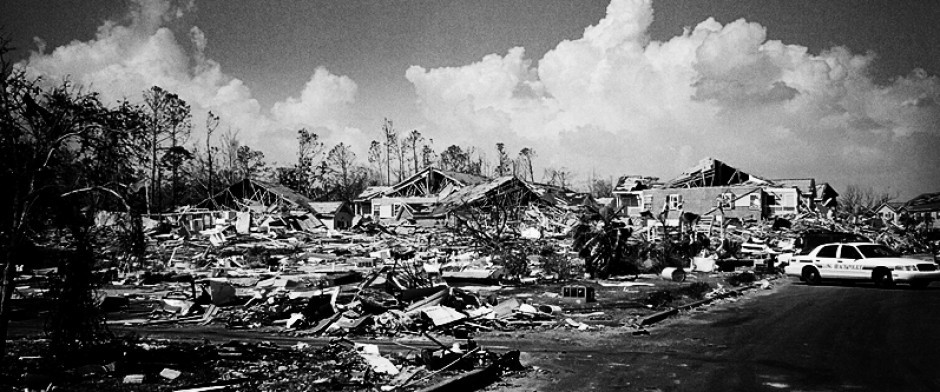
As the United States races forward to develop policy to deal with the escalating crisis in the Ukraine, many citizens have been left totally uniformed respective of our regional interests and policies toward it. As a concerned citizen, I am respectfully requesting a pause to allow professional debate on the subject before the Administration effectively locks America into another Cold War with Russia. I, like many Americans, remember the days of the Cold War and do not wish to return to the fear of nuclear annihilation, incredible levels of defense spending, and never ending guerrilla wars across the globe.
Sadly, logic rarely plays any part in policy development and seems to have had almost no impact on the current administration’s policy decisions. Further, as a mere voiceless citizen amongst the masses, I have little reason to suspect my voice matters or will ever be heard in front of our policy makers. As such, I risk being labeled a radical for daring to demand answers to critical questions all Americans should be concerned over as President Obama and the US Congress steer our nation toward a head on collision with Russia. America, as every nation, has made many mistakes in its past. Can we not, at least once, learn from these mistakes and try to get a policy right? Rather than simply complain and point out the failures, I will offer solutions. To that end, I recommend an initial, vigorous, public debate to inform upon and explore all policy options before our political knee jerk reactions land our nation in very dire waters.
I am of the mindset that sanctions are the extreme extent of economic warfare, which is inextricably linked to waging warfare in the classical sense. Therefore, a declaration to destroy a nation’s economy is, in effect, the same as war. To assume otherwise is a dangerous oversight in respect to high stakes political brinkmanship. Perhaps the Russian oligarchs will still have steak and caviar, but sanctions will mean joblessness, hardship, and starvation for millions of Russians. These deprivations upon the public amount to little difference from a shooting war. Russia intimately understands this, but unlike Iraq, Afghanistan, and Libya, Russia has the ability to effectively fight back against global bullying. Before walking further down this treacherous road with Russia, a formidable adversary I must add, I would like the President, Congress, and ultimately the American public to definitively answer and defend in open debate the following elementary questions:
What and specifically, whose interests are being served by our involvement in the Ukraine? What vital national interests are at stake? What will we receive in exchange for our involvement in Ukraine? What are our policy goals in respect to Russia and Ukraine? What end state do we seek by sanctioning Russia? What is the timeline by which we determine success in our policy? How far are we willing to go to achieve those goals? Will we commit to military action should sanctions fail to achieve our policy goals? Are we willing to risk nuclear war?
What is the projected global economic impact of sanctions on Russia for the US economy? Are sanctions our only tools? What price is the US willing to pay for enacting painful sanctions on Russia? If Europe won’t support sanctions, why should the US? Do we truly have a global economy? If so, wouldn’t hurting the Russian economy also hurt the world economy? If Europe is correct that sanctions would hurt the EU’s economy, wouldn’t it by default also hurt the US economy? Can the US economy afford more negative economic pressure? Is sanctioning Russia over Ukraine worth billions of dollars in losses for the US economy? How many dollars in losses are we willing to endure to achieve our policy goals in Ukraine? Will one billion dollars in loans be enough money to stabilize Ukraine? If not, how much are we willing to spend and what will we expect as a return on investment? What is the actual probability the US taxpayer will be repaid for the loan to Ukraine?
Why can’t Ukraine fight for itself? Isn’t Ukraine a European issue? Why must the US fight Europe’s battles? What are the historic consequences of intervening in Europe’s civil wars? What is the historical precedent for American success in this type of intervention?
Who are the leaders in the Ukraine that we are now supporting? Did they not take power through a violent overthrow of the elected Ukrainian government? Who supported that revolution? Could the Russians have viewed this as a threat? If the tables were turned, would we approve of similar action on our borders? How do we decide who is and isn’t the legitimate government in the Ukraine? Who are we to decide which coups, in a string of overthrows and power grabs, are legitimate after unilaterally deciding the formerly recognized Ukrainian government was illegitimate? How do we know the current regime in power in Kiev will work toward America’s best interests? If the leadership we back in Ukraine becomes unpopular and fails to deliver positive change, will we continue to back the regime? If the leadership we back in Ukraine is itself overthrown, what is the potential damage to US interests in the region?
Will sanctions actually achieve our goals by altering Russia’s decisions or just further alienate a rather large and powerful nation? How long are we willing to continue sanctions before we assess policy failure or success? If sanctions fail to have the desired effect, what are plans B and C? What is the cost of inaction? What would be the benefits to supporting Moscow over Kiev? Have we even considered supporting Moscow? What are the Russian grievances? What does Russia have to gain or lose in Ukraine? How far is Moscow willing to go to defend what it considers its vital national interests in Ukraine? How much pain is Russia willing to endure to achieve its policy goals respective of Ukraine? Are we willing to inflict that amount of pain to force our will on Russia? How much pain will doing so entail for the US?
Are we as a nation prepared to step firmly back into a new Cold War landscape for the indefinite future? Is the US willing to play the game of chicken to its full conclusion? If not, why should we engage in the dangerous game of brinkmanship in the first place? What retaliatory measures will Moscow take in response to sanctions? Where and how could Moscow feasibly hurt America the worst? What are the implications of Moscow shutting down the Northern Supply Route to Afghanistan during our planned retreat in 2014? What are the implications of Moscow authorizing advanced weapons sales to countries like Syria, Iran, and China? What if Moscow attacked the US militarily? What would be the most likely course of action for Moscow? What would Moscow’s most dangerous course of action be? Do Americans realize further escalation could lead to the deaths of many Americans across the world as Russia begins to retaliate? Is this something that America considers an acceptable loss?
I would argue that if these very basic, yet critically important questions were honestly answered and publicly debated, the policy decisions respective of the situation in the Ukraine would be patently clear. What Americans would realize is that intervention in Ukraine is not in our vital national interests. The US could only derive a net loss to our global geopolitical stability, security, and strength. The public would see that US actions will be ineffective, counterproductive, and ultimately futile. Americans would not be willing to pay the true price of a reckless intervention.
Perhaps, I am an unbending ideologue for asking that basic logic to be applied to our policy decisions. Maybe, I am just a blind and backwards isolationist for wanting to avoid more foreign conflict. Certainly, I must be a cold pragmatist for the mere insinuation that one should place American interests before foreign interests. We might as well assume I am also greedy for suggesting I am not willing to have more of my tax dollars looted to pay the debts owed to foreign banks by foreign elites. No doubt I am also unpatriotic for not rushing to arms to support military intervention in the Ukraine. If so, then I stand guilty as charged.
Sincerely,
Guiles Hendrik
April 20, 2014
All rights reserved.
Contact: Please send questions or comments to guileshendrik@gmail.com



